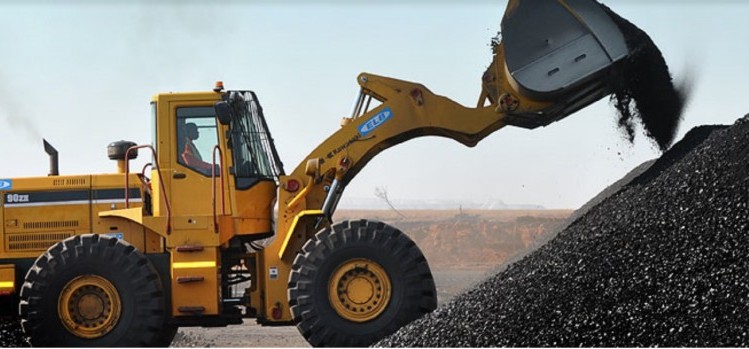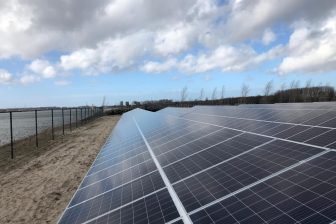EIA: ‘Mondiale energieverbruik groeit met 48%, meeste blijft fossiel’

13 mei 2016 – In 2040 is de mondiale energievraag 48 procent groter dan in 2010 en ruim driekwart wordt opgewekt uit fossiele bronnen. Dat verwacht de US Energy Information Administration (EIA) in de International Energy Outlook 2016. Is de EIA het klimaatakkoord vergeten, vragen critici zich af.
De grote groei in de wereldwijde energiebehoefte wordt voor meer dan de helft veroorzaakt door de stijgende energievraag in opkomende economieën in Azië, stelt Adam Sieminski van EIA. Hoewel hernieuwbare energie hard groeit, zullen fossiele bronnen in 2040 nog voor meer dan driekwart (78 procent) van de energie zorgen aldus de EIA.
De belangrijkste vindingen uit een bericht van de EIA
- ‘(…) World energy use increases from 549 quadrillion British thermal units (Btu) in 2010 to 815 quadrillion Btu in 2040. The increase mainly occurs in the developing world, driven by long-term growth in economies and populations. More than half of the total world increase in energy consumption is attributed to developing Asia (Figure 1).
- IEO2016 projects renewables as the world’s fastest-growing energy source—increasing by 2.6% per year through 2040—but fossil fuels still supply more than three-quarters of world energy use (Figure 2). Although petroleum and other liquids remain the largest source of energy, the liquid fuels share of world marketed energy consumption falls from 33% in 2012 to 30% in 2040.
- Natural gas is the fastest-growing fossil fuel in the outlook. Global natural gas consumption grows by 1.9% per year. Abundant natural gas resources and robust production—including rising supplies of tight gas, shale gas, and coalbed methane—contribute to the strong competitive position of natural gas. Coal is the world’s slowest-growing energy source, rising by 0.6% per year through 2040. By 2030, natural gas surpasses coal to become the world’s second-largest energy source after liquid fuels (Figure 2). (…)’
Het rapport kreeg meteen veel kritiek.
‘It is disappointing that after the Paris Agreement, they are not even considering a world in which we are getting close to solving climate change’, aldus Jake Schmidt van de National Resources Defense Council in Climate Change News.
‘Highly skeptical of EIA forecasting CO2 emissions from coal staying the same in OECD countries over next 24 years’, twitterde Gabriel Marty, een analist in het Franse klimaatonderhandelingsteam.
‘The EIA forecast that global coal use will increase is literally completely off what everyone else in the world is saying’, aldus zonne-energie pionier Jigar Shah in pv magazine.
De EIA voorspelde de mondiale energievraag voor de komende dertig jaar aan de hand van geldende wetten en regels en aangekondigd beleid. In de Verenigde Staten zelf werd het Clean Power Plan van Obama nog niet meegenomen, aldus de EIA. Tegenover de pers geeft Sieminski van EIA toe dat er grote onzekerheden zitten in de voorspellingen en door technologische en beleidsontwikkelingen radicaal andere uitkomsten mogelijk zijn. Maar hij ontkent dat het klimaatakkoord en andere internationale afspraken zijn genegeerd.
Uit een bericht van Scientific American
‘(…) In fact, the report makes clear that EIA “has tried to incorporate some of the specific details,” such as renewable energy goals put forward in the U.N. Framework Convention on Climate Change, in its 2016 IEO reference case. “However, a great deal of uncertainty remains with regard to the implementation of policies to meet stated goals.” (…) “Does that mean that we are wasting taxpayer dollars doing it? The answer is no. It’s hugely valuable to policymakers, it’s hugely valuable to the public.” (…)’
Bronnen
EIA, 11 mei 2016: Developing economies in Asia lead projected growth in world energy use
EIA, mei 2016: International Energy Outlook 2016
Climate Change News, 11 mei 2016: Where are climate goals in EIA energy outlook? It’s complicated
pv magazine, 12 mei 2016: The U.S. Department of Energy’s EIA projections continue to miss the mark
Scientific American, 12 mei 2016: Fossil Fuels May Not Dwindle Anytime Soon
Foto: Conticoal



